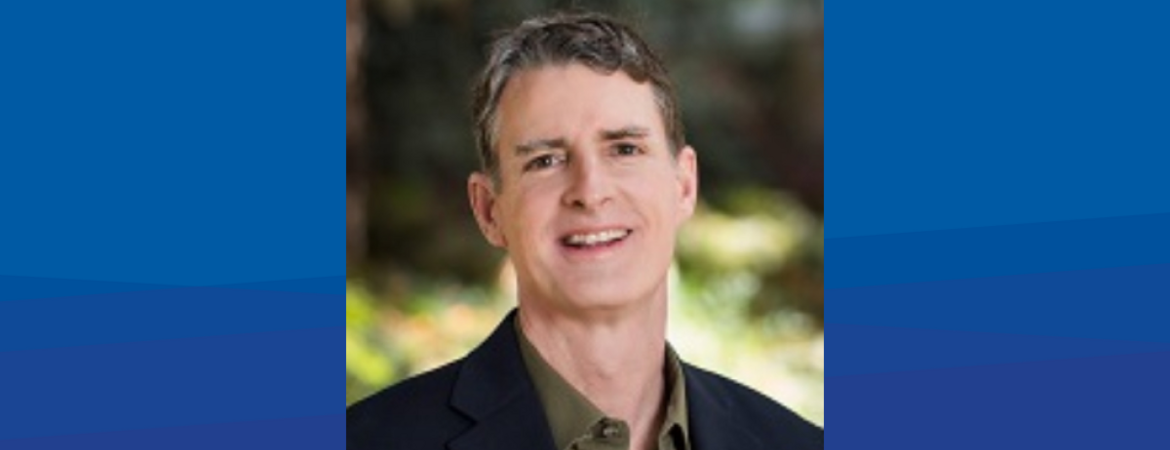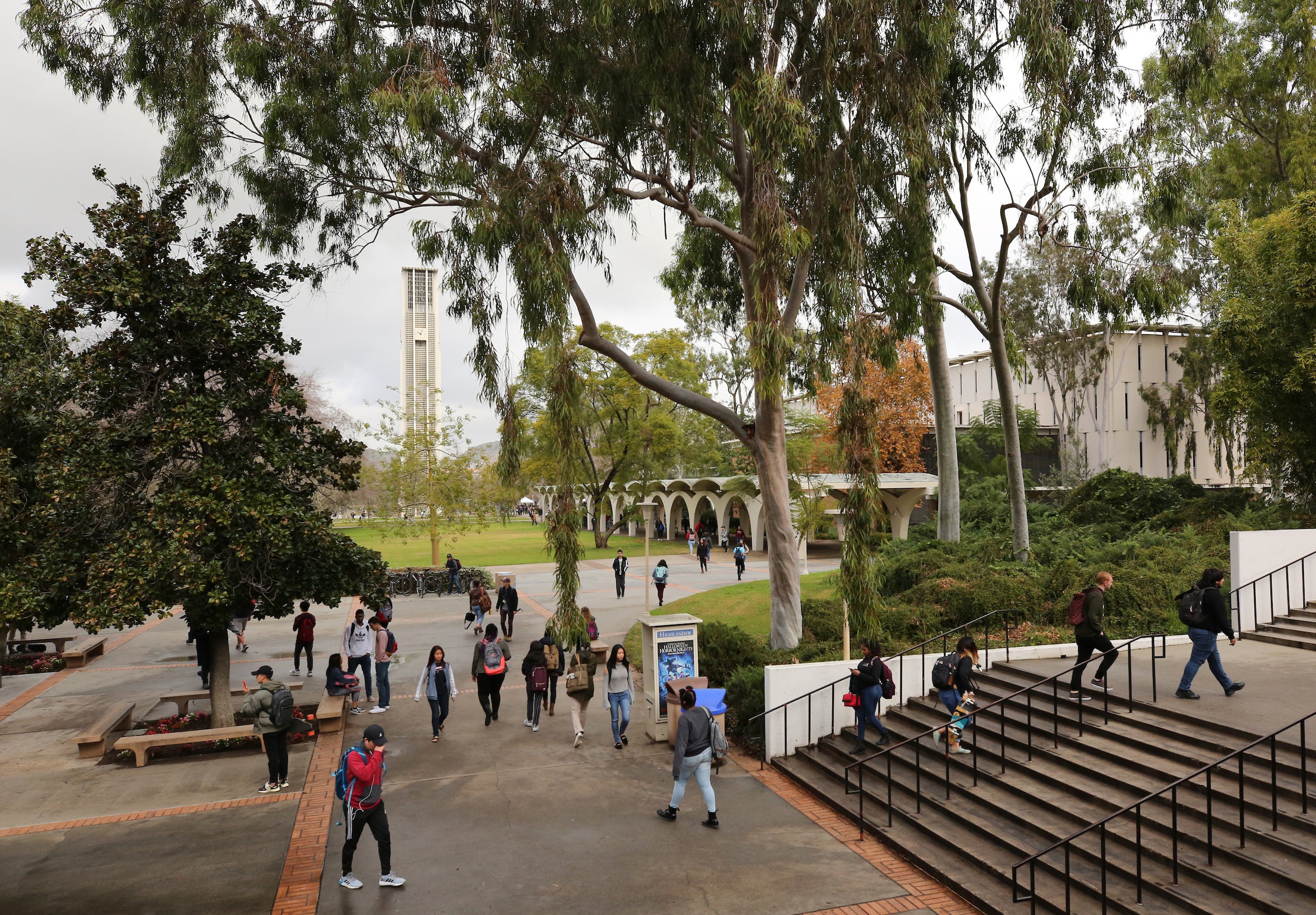
As the child of two teachers, Robert Ream saw education as a key part of his upbringing.
After interning for a legislator in California chairing the education committee, Ream took up an interest in policy and how it changes education at the state level, which influenced his higher education pursuits and career.
Ream, who started as associate dean of student success at the University of California, Riverside, in November 2022, spoke with Inside Higher Ed about his research in education policy, his philosophy for student success and his goals in his first year.
Q:What is your role at the university?
A: There are four programs within the new Division of Undergraduate Education. One is our Center for Teaching and Learning, [which] we call XCITE. Another is the University Writing Program. A third is our honors and engagement program. And this fourth new one is student success.
I’m leading the student success effort, and that effort also [has] four groups. We have two URM—underrepresented minority—success programs. One is the Black Student Success program. Another is called the Kessler Scholars Program, and that’s for first-gen, low-income students. Then we have the Academic Resource Center. We also have a Health Professions Advising Center. So the four of those organizations are under my purview.
I also spend a lot of time thinking about and working with academic advising professionals on the campus.
Q: Your research focuses on social capital and social dynamics in higher education. How does that impact your work and philosophy for student success?
A: I really think about student success as being people-centered. I think about trust, collaborative community and professional responsibility all together.
That trust aspect comes from the literature and social capital. When I think about trust, as it relates to student success, I think about trust in the generalized social environment, like, “How do we how do we feel when we navigate the university setting? Is this a community that feels safe to us?”
But I also think about trust in terms of interpersonal dynamics: with faculty-to-student trust, staff-to-student trust, students-to-student trust. Trust is really central to my philosophy. On an interpersonal level, if I think about trust, I think about [you], Ashley, in terms of [your] competence, in a particular domain: Are you a competent journalist? I think about benevolence: Are you someone who cares about other people? And I think about integrity: Are you someone who does what you say you’re going to do?
When those things go together and when you feel the same way about me, then we have a trustworthy kind of relationship. And when that happens, good things, I think, occur. So yes, this people-centered philosophy on student success is grounded in my literature and my research.
I have done some scholarship on trust and its effect on students’ motivation and success in higher ed. I also mentioned this notion of collaborative community. The way I think about that is, in order for students to succeed in higher education, we have to work together, and we have to work together collaboratively in ways that build from one another's strengths, and not in siloed kinds of ways.
In large institutions, this notion of collaboration is really crucial to getting things done on behalf of students. Whether it’s the Division of Undergraduate Education, working with Student Affairs, working with the Faculty Senate, etc., [we have] got to work together.
When I think about professional responsibility, I think of something that’s normative. Something that’s moral, something that’s fiduciary, that we have this obligation to know, clearly, why we’re doing what we're doing. That we act as social trustees on behalf of student betterment. That mind-set is important, too.
Q: What are your goals in your first year?
A: I want to enrich and extend collaboration first within the division of undergraduate education in our four programs. I also want to make sure that within Student Success, the four groups in my area are collaborating well. I’d also bring in the academic advising community on this campus.
I want us to build out the two URM success programs really effectively—Kessler is focused on first-generation, low-income URM, and the Black Student Success Program maybe speaks for itself. We’re working hard to develop those programs on behalf of students on this campus.
Another really important goal … is we have a CRM, a customer relations management tool, that we’re implementing in order to make advising much more efficient on this campus. But not only efficient, but more holistic, reducing this sort of transactional engagement that our academic advisers have, and allowing for a more holistic approach to advising.
Advising gets back to, “Oh, I see you, I know some of what your skills are, I have an idea of what actions you need to take to fulfill them,” that kind of advising.
Enhancing Academic Resource Center programming seems really important to me as well. It’s one thing to have academic resources on the campus. It’s another thing for students to avail themselves to take advantage of it. We’re finding … it’s often the case that students who have the most to benefit from Academic Resource Centers, for example, may be the least likely to reach out, to seek help, to ask questions.
Here we are, going back to trust again, because trust demands risk-taking. When we trust someone, we begin to move in the direction of vulnerability. This is a really great place for growth, whether it’s in a personal relationship, or whether it’s in your academic development, but it’s scary. And it’s hard. And you don’t want to do it unless you think that there’s the likelihood that that person or that institution I’m working with is competent, that they care about me, and that they’re going to do what they say they’re going to do. So I think in order for us to encourage students to avail themselves to the support that we have, it goes back to the people thing. We really need to get to the place where we see you when we want to help you and you know that, and you’re willing to take a risk.
Q: What are the measures of success for you in your work?
A: I guess really where the rubber hits the road for me is when we narrow the gap between who each individual student happens to be on this campus, and who they are wanting to become or who actually they’re meant to be.
I feel like we’re succeeding in student success when that gap is beginning to narrow, when Ashley is becoming the person that she was meant to be, and student success is helping her to do that in all the myriad different ways.
That’s a big charge, because it demands a deep understanding of who the student is, right? And then it demands that we align your goals for who you are with the actions that you take to get there. That’s an important area where student success steps in: if you want to become a professional in journalism, what you need to do in your coursework, what you need to do in your experience on this campus. Are there professional organizations you can get associated with to prepare you for your career and so forth?
That’s maybe a little philosophical, but I do think that matters. I think it’s hard for any of us to get to who we actually are meant to be. It just takes something special, but it helps when another person sees you as you are and all the possibility within you, and sees the resources that you bring and then accentuates those resources.
We do that, then I think we get closer to our 2030 goals that UCR has set in substantial part in alignment with the Boyer Commission’s [2030 Blueprint for Undergraduate Education at U.S. Research Universities] work. They refer to it as this equity and excellence in power, which fits very organically with what we’re doing at UCR.
One is we’ve got graduation goals: we want our four-year graduation rates by 2023 to be 75 percent among incoming students and 85 percent in six years. We want to eliminate these gaps in educational opportunity and performance. We’re working hard to think about how best to do that, and we’re doing pretty well in terms of narrowing inequities in completion and attainment rates.
Another one that we’re working toward is improving a sense of inclusion on campus and belonging, in respect across demographics. That goes back in part to the generalized notions of trust in the university environment, campus climate.
Then we want students to recognize the return on investment for what they've experienced at UCR. We would like to think that if we ask students again, a few years afterwards that they would still want to come back here to have that experience again.
Is there a new student success-focused role at your institution? Tell us about it.
By Ashley Mowreader
